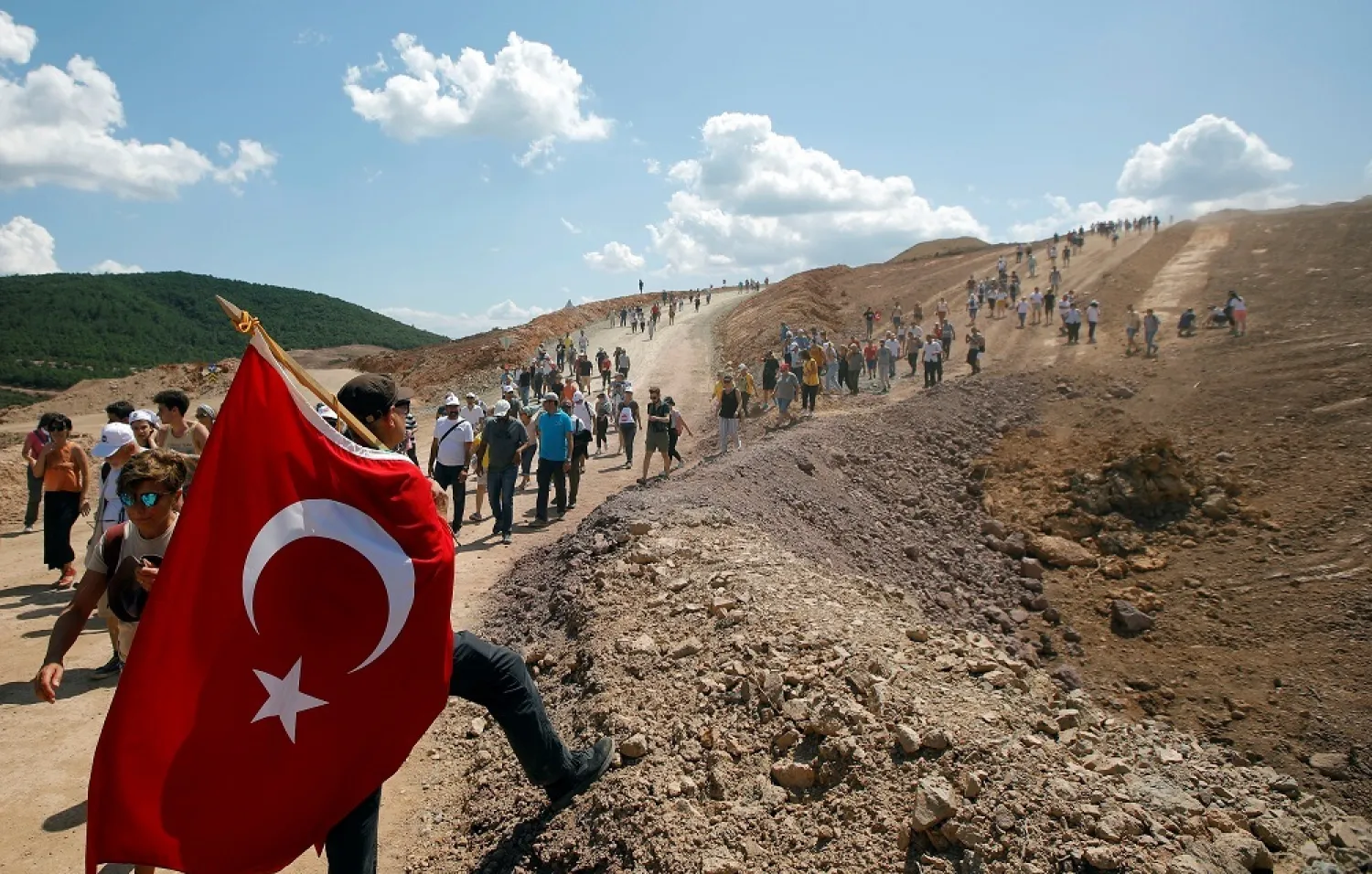Thousands of Turks including opposition lawmakers staged a peaceful and unusually large protest on the outskirts of a small western town on Monday against what they say will be pollution from a foreign-owned gold mine project.
Public opposition to the site owned by Dogu Biga Mining, the Turkish subsidiary of Canada-based Alamos Gold Inc, mounted after the firm allegedly cut down four times the number of trees than it declared in an environmental impact report, said Reuters.
Near the town of Kirazli in Turkey’s Canakkale province, a few dozen environmentalists have slept in tents since July 26 as part of what they call a “Watch for Water and Conscience”.
Activists say cyanide will be used to extract gold in the Alamos project and will contaminate the soil and waters of a nearby dam. The Turkish government rejects charges that the mine will damage the environment and denies cyanide will be used.
Turkish environmentalists were part of protests in 2013 over a project to demolish Istanbul’s Gezi Park, which grew into nationwide anti-government unrest that prompted a violent security crackdown and hundreds of arrests.
On Monday, some 5,000 protesters from across the country gathered on a hill near the planned mine site carrying signs reading: “Don’t come if you like gold,” and “We can do without gold, we can’t do without the Kaz Mountains.”
From there they walked to the project site where security forces were limited to a few dozen gendarmerie, and they were allowed entry to a field on the property.
The mine will harm the ecological balance of a wooded region near Mount Ida - or Kaz, as it locally known - which produces huge amounts of oxygen and is home to diverse flora, said Rebiye Unuvar, deputy mayor of Canakkale.
“In six years, they will leave after this area becomes arid and is turned into a desert,” she said. “We will fight until the end to stop the eco-slaughter here.”
TEMA, a charitable group focusing on forestry, said 195,000 trees were cut down for the project, well above the 46,000 target previously announced by Dogu Biga.
A statement by Dogu Biga said 13,400 trees had been cut down for the mine and that trees would re-planted in the area once work is completed. The company did not immediately respond to a request for further comment.
Arid hilltop, blue sea
Supporters of President Recep Tayyip Erdogan’s AK Party say large infrastructure projects, including Istanbul’s new airport and a third bridge across the Bosphorus strait, support the economy, which has been driven for years by a construction boom.
Government officials say mine projects are necessary for Turkey to lessen its dependence on imports by using its own natural resources, also helping lower its current account deficit.
Burak Ciftci, 34, was one of the first people to camp on the fringes of the town of Kirazli. “We definitely do not have an aim such as attacking the mine, (what we are doing now) is civilian resistance,” he said.
“We thought the Canadian company might have a sense of humor so we played the guitar yesterday and took balloons to them with our kids.”
Asim Yildiz, 58, said he visits the area every summer and that he joined the protests on Monday to raise awareness about the environmental impact of the gold mining project. “This is our nature, our right. What can we give to future generations? Will we give them the arid hilltop or the blue sea?”
Turkey approved 36,122 mining, energy and other projects between 2012 and 2017 located on a total of 246,257 hectares of woodland, according to the Foresters Foundation of Turkey. Government data shows that forests made up 29% of Turkey as of 2018 and had increased in size in recent years.









